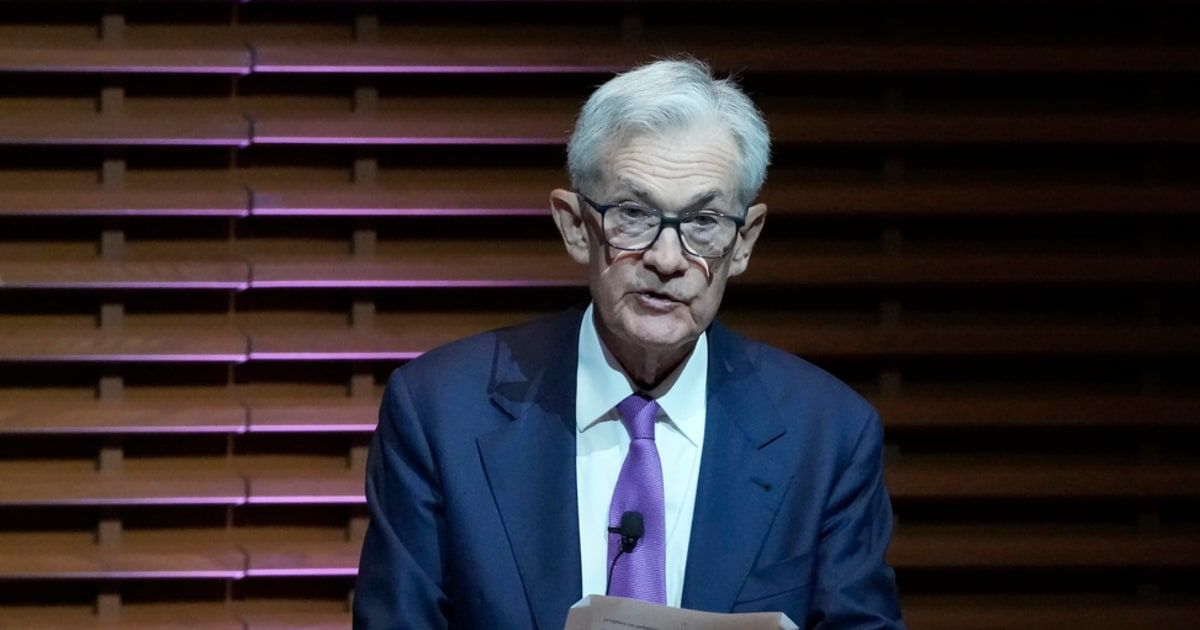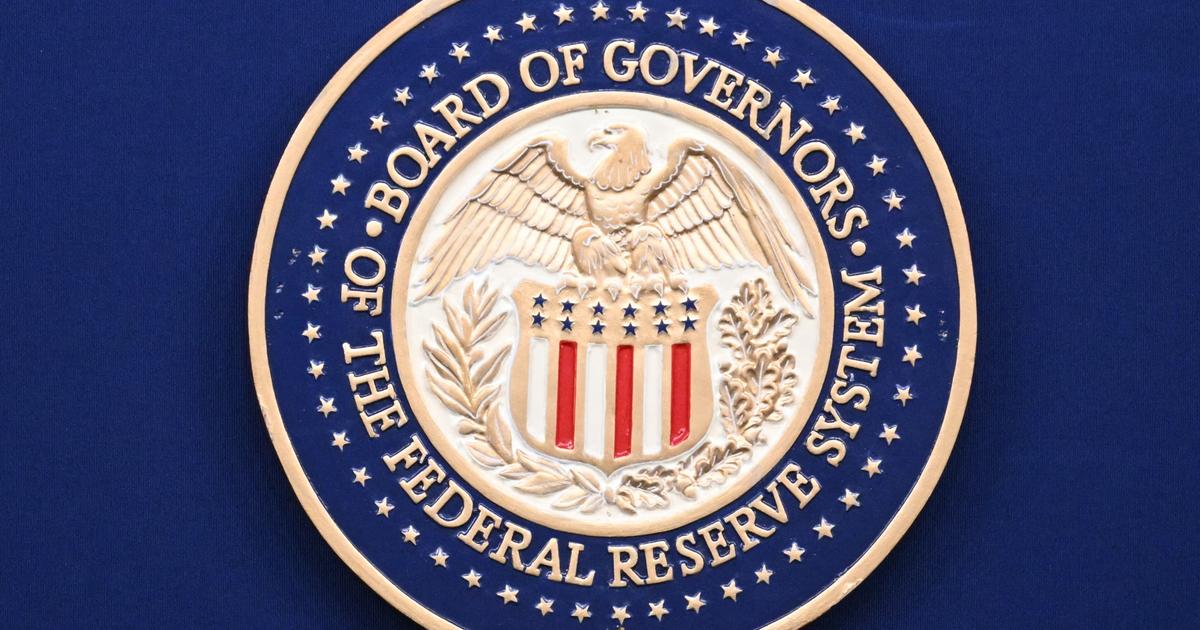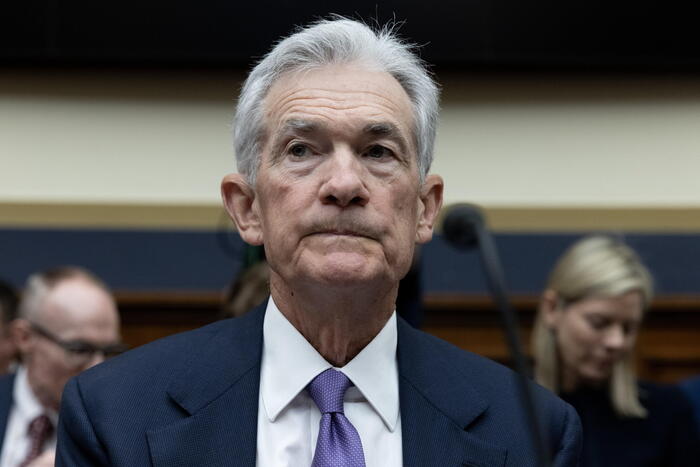Jerome Powell, this Tuesday before his appearance before the Senate Banking Committee, in Washington. Al Drago (Bloomberg)
The Federal Reserve (Fed, US central bank) is willing to do whatever is necessary to tame inflation and is not ruling out further, more aggressive interest rate hikes, after slowing down at its last meeting, in which softened the increase by 25 basis points after four consecutive increases of 75 and a subsequent one of 50. The disturbing data from January, with a rise in prices in services, and the strength of the labor market have pushed the institution that sets the US monetary policy to consider higher-than-expected increases if “all” of the information (the next CPI data and the number of hirings, above all) suggests the need to adopt stricter measures to contain the upward pressure.
It is the clear message that Jerome Powell, president of the Fed, has pronounced this Tuesday before the Banking Committee of the Senate, where he will appear today and tomorrow.
His presence before the legislators had drawn all eyes, from investors to consumers to Wall Street.
As has been the case in recent months, the threat of a recession -not ruled out in the second half of the year, albeit mild- hangs over the US economy again if the Fed's measures to curb inflation excessively cool the economy.
It's the dilemma about a soft landing or, depending on the climbs, abrupt.
“The latest economic data has been stronger than expected, which suggests that the final level of interest rates is likely to be higher than expected,” Powell has advanced in his appearance.
It is Powell's first public comment since inflation unexpectedly spiked in January and the government reported unusually high hiring that same month.
This Friday the employment data for February will be released, and next Wednesday, the CPI data for that month.
The Fed will hold its next meeting on March 21 and 22, with all these data in view and another one, which it uses as a base: the personal consumption price index, which was 7% in June and had fallen to 5 .4% in January.
Wall Street and European stock markets have turned red after Powell's warning.
Although part of that unexpected economic strength may have been due to seasonal factors, Powell argues that it may also be a sign that the US central bank needs to do more to moderate inflation, especially entrenched core inflation (discounting food prices and energy), even going back to larger rate increases of a quarter of a percentage point.
"If the totality of the data indicates that a faster tightening is justified, we would be prepared to increase the rate of rate hikes," Powell has advanced, who already advanced in February that more would occur.
Employment and inflation data will be crucial in determining whether the inflationary curve is falling behind or whether the more dovish policy that was expected to continue at the next meeting can be maintained.
In any case, Powell's comments come as a stark acknowledgment that the "disinflationary process" he spoke of repeatedly at the February 1 press conference still has many steps to go.
Although inflation "has been moderating" since its peak last year, Powell has insisted that "the process of getting inflation back to 2% [the Fed's target] has a long way to go and is likely let it be accidental."
Eight consecutive climbs
Members of the Senate Banking Committee will question Powell after his appearance, a non-exceptional scheduled and regular hearing.
The last time he sat before congressmen was last June, when inflation peaked at 9.1%, to fall to 6.4% this January.
In his testimony, the Fed chair has pointed out that much of the impact of central bank monetary policy may not yet have been felt, as the labor market shows its strength with an unemployment rate of 3.4%, a record since 1969. , and strong salary increases.
For this reason, Powell has suggested that the labor market may have to weaken for inflation to ease in the service sector, where prices continue to rise.
“In order to restore price stability, we will have to see lower inflation in this sector, and it is very likely that [that implies] labor market conditions softening,” Powell said.
After surrendering to the evidence that inflation was not a passing phenomenon, due to the explosion in consumption and normalization after the pandemic, last June the Fed launched the most aggressive rate hike cycle since the 1980s.
The rise in the price of money, which currently stands at 4.5%-4.75% after eight consecutive increases, has pushed up the costs of mortgage loans, contributed to volatility in traditional equity markets, as well as as alternatives, such as cryptocurrencies, and sparked broader debates about the effectiveness of the Federal Reserve.
Follow all the information on
Economy
and
Business
on
and
, or in our
weekly newsletter

/cloudfront-eu-central-1.images.arcpublishing.com/prisa/TMXV2Z2UPFNTP2LVYYWY53RLTY.jpg)

/cloudfront-eu-central-1.images.arcpublishing.com/prisa/K63BQCT5FHKKXUWRSFYE4KBNFI.jpg)
/cloudfront-eu-central-1.images.arcpublishing.com/prisa/O3URHWIQOUAJHPGYUFW2ZWAF2I.jpg)




